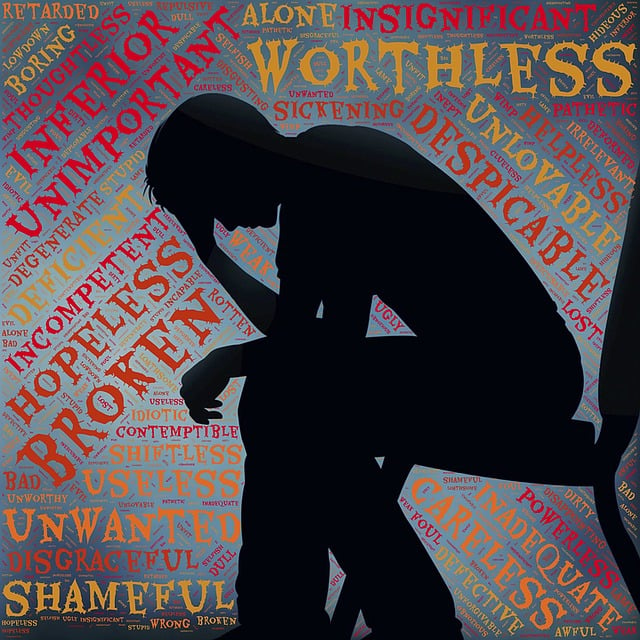Mental illness stigma, perpetuated by negative perceptions and stereotypes, hinders access to therapy for adults dealing with relationship issues, limiting their opportunities for fulfilling lives and healthy connections. Education and awareness campaigns, led by organizations and integrated into curricula and community programs, are powerful tools to reduce stigma by normalizing mental health conversations and promoting understanding. Therapeutic approaches focused on adult relationships encourage empathy and compassion, challenging societal beliefs and creating supportive environments that facilitate help-seeking without judgment. Collective action involving myth-busting, peer support, and community events is essential for fostering a culture of belonging and resilience in the face of mental illness stigma.
Mental illness stigma remains a pervasive barrier, affecting millions worldwide. This article delves into comprehensive strategies aimed at reducing this societal scourge. We explore the profound impact of stigma on individuals and communities, highlighting its role in exacerbating isolation and hindering access to essential care. Through education, open conversations, therapeutic interventions focusing on adult relationship issues, and community advocacy, we can foster a more compassionate environment for those grappling with mental health challenges.
- Understanding Mental Illness Stigma: Its Impact on Individuals and Society
- The Role of Education and Awareness in Reducing Stigma
- Encouraging Open Conversations: The Power of Personal Testimonies
- Therapeutic Approaches to Addressing Stigma: A Focus on Adult Relationships
- Strategies for Continued Support and Advocacy: Fostering a More Compassionate Community
Understanding Mental Illness Stigma: Its Impact on Individuals and Society

Mental illness stigma is a pervasive issue that significantly impacts individuals and society as a whole. It often manifests as negative perceptions and stereotypes surrounding mental health conditions, leading to discrimination and isolation. This societal construct can severely hinder those affected from seeking much-needed support, such as therapy for adults dealing with relationship issues or other common challenges. The consequences are far-reaching; it prevents people from leading fulfilling lives, accessing employment opportunities, and maintaining healthy relationships.
The impact of stigma extends beyond the individual, affecting community dynamics and healthcare systems. It contributes to a culture where mental health discussions are often avoided, fostering an environment of secrecy and shame. This clandestine nature of mental illness can exacerbate existing problems, including burnout prevention, as individuals struggle in silence. However, understanding the profound effects of stigma is the first step towards change. Organizations dedicated to stress management workshops and self-awareness exercises play a vital role in promoting education and challenging these societal norms, paving the way for more inclusive and supportive environments.
The Role of Education and Awareness in Reducing Stigma

Education and awareness play a pivotal role in reducing the stigma surrounding mental illness. By integrating mental health education into curricula across various sectors, we can foster empathy and understanding from an early age. This includes not only teaching about different conditions but also promoting open conversations around emotional well-being and seeking help. Normalizing discussions about mental health encourages individuals to recognize their own or others’ struggles and removes the barriers of shame and fear often associated with seeking therapy for adults experiencing relationship issues or other challenges.
Beyond formal education, public awareness campaigns can significantly impact stigma reduction. These initiatives should focus on sharing personal stories of recovery and resilience, highlighting the diversity of mental health experiences. Engaging healthcare providers in burnout prevention strategies that emphasize self-care and compassion can also model healthy attitudes towards seeking therapy. Incorporating these efforts into broader Mental Health Policy Analysis and Advocacy ensures that societal perceptions evolve to match the reality of mental illness as treatable conditions, contributing to more effective emotional healing processes.
Encouraging Open Conversations: The Power of Personal Testimonies

Encouraging open conversations about mental illness is a powerful tool in the fight against stigma. Personal testimonies from individuals who have experienced mental health challenges can humanize these issues, breaking down barriers and fostering understanding. When people share their stories, they offer a glimpse into their unique journeys, highlighting the diverse nature of mental illness. This approach normalizes conversations around mental health, making it easier for others to recognize their own struggles or reach out for support.
In many cases, sharing personal experiences can lead to reduced stigma and increased empathy. It challenges societal misconceptions and encourages people to view mental illness as a treatable medical condition rather than a character flaw. By incorporating these narratives into therapy sessions, especially those tailored for adults dealing with relationship issues, professionals can create safe spaces for exploration and healing. This method has proven effective in various contexts, including Mental Health Policy Analysis and Advocacy efforts, where real-life stories have been instrumental in shaping public perceptions and driving initiatives aimed at Depression Prevention and Mood Management.
Therapeutic Approaches to Addressing Stigma: A Focus on Adult Relationships

Addressing stigma surrounding mental illness often involves delving into therapeutic approaches that target deep-rooted societal perceptions and beliefs. One significant aspect is focusing on adult relationships, as interpersonal connections play a pivotal role in shaping attitudes towards mental health. Therapy for adults with relationship issues can be a powerful tool to combat stigma by fostering understanding, empathy, and compassion.
Compassion cultivation practices within these therapeutic settings encourage individuals to develop self-compassion and extend that same kindness towards others, challenging the critical inner voice often associated with mental illness stigma. Mental wellness coaching programs designed around cultivating healthy relationships can empower adults to navigate social interactions with increased confidence and resilience. Additionally, integrating mental health education into community programs can facilitate open discussions about mental wellness, breaking down barriers and promoting supportive environments where individuals feel safe to seek help without fear of judgment.
Strategies for Continued Support and Advocacy: Fostering a More Compassionate Community

Reducing stigma surrounding mental illness is an ongoing process that requires collective effort and a paradigm shift in societal perception. One powerful strategy to foster a more compassionate community is through education and awareness campaigns. Mental health education programs designed to reach both adults and younger audiences can play a pivotal role in promoting understanding and empathy. These initiatives should focus on debunking myths, normalizing conversations about mental health, and highlighting the importance of seeking professional help, such as therapy for adults dealing with relationship issues.
Building resilience within communities is another effective approach. By implementing emotional well-being promotion techniques and supportive services, individuals can develop coping mechanisms to navigate mental health challenges. This includes organizing workshops, peer support groups, and community events that encourage open dialogue and foster a sense of belonging. Such efforts contribute to creating an environment where people feel supported, reducing the barriers to seeking help and fostering a culture of compassion and understanding for all mental health journeys.
Mental illness stigma reduction is a multifaceted approach that requires education, open conversations, therapeutic interventions, and community support. By understanding the profound impact of stigma on individuals and society, we can foster a more compassionate environment. Encouraging personal testimonies and implementing strategies like those focused on adult relationship issues in therapy, we move towards a world where mental health is treated with the same care and understanding as physical health. Continued advocacy and support are essential to ensuring everyone receives the help they need without fear of judgment or discrimination.








